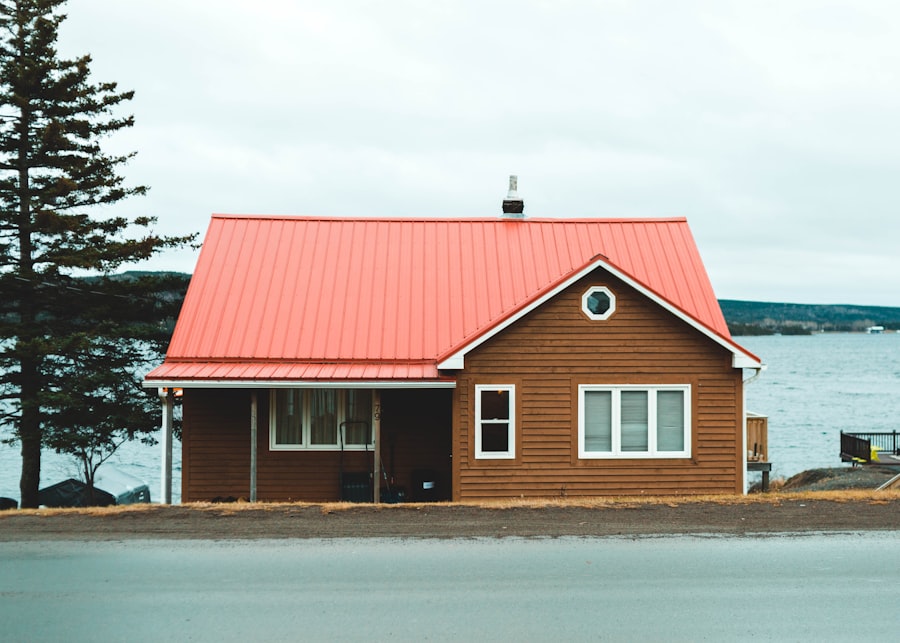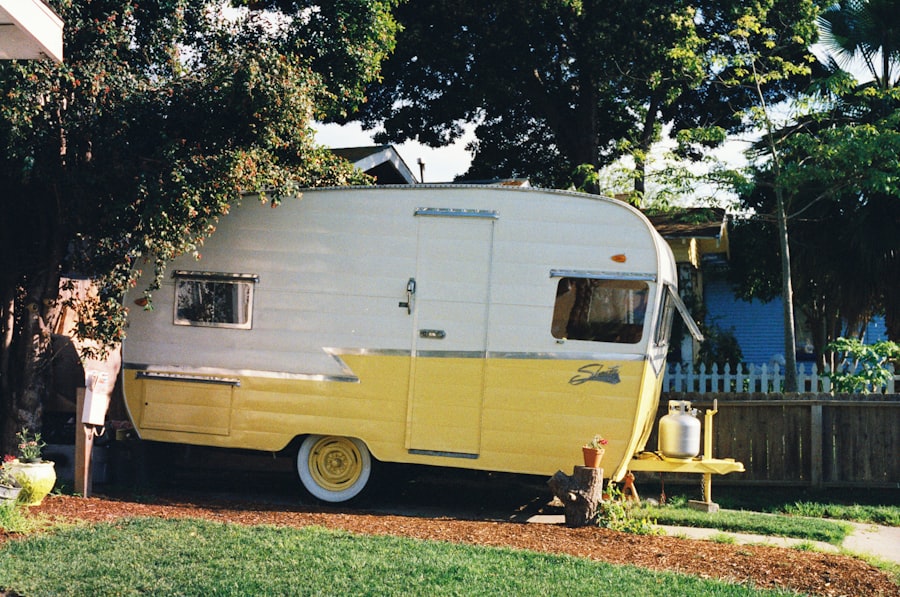The market for used mobile homes has evolved significantly over the past few decades, reflecting broader trends in housing, economics, and consumer preferences. As traditional housing prices soar, many individuals and families are turning to mobile homes as a more affordable alternative. This shift is particularly pronounced among first-time homebuyers, retirees seeking downsized living arrangements, and those looking for vacation properties.
The affordability of used mobile homes often makes them an attractive option, with prices typically ranging from $10,000 to $50,000, depending on age, condition, and location. Moreover, the used mobile home market is characterized by its diversity. Buyers can find a wide range of options, from older models that may require significant renovations to newer units that are move-in ready.
The appeal of mobile homes lies not only in their lower price point but also in their flexibility; they can be placed in mobile home parks or on private land, offering various lifestyle choices. Additionally, the increasing acceptance of mobile homes as a legitimate housing option has led to a growing number of communities specifically designed for mobile home residents, complete with amenities and social activities that foster a sense of belonging.
Key Takeaways
- Research the used mobile home market thoroughly to understand pricing and availability.
- Inspect the home carefully for structural and mechanical issues before buying.
- Consider location, condition, and financing options when purchasing.
- Negotiate the price based on inspection findings and market value.
- Plan for moving, setup, and ongoing maintenance to ensure long-term satisfaction.
Researching and Locating Used Mobile Homes for Sale
Finding the right used mobile home requires diligent research and a strategic approach. Potential buyers can start their search online through various platforms that specialize in mobile home sales. Websites like Zillow, Craigslist, and specialized mobile home listing sites provide extensive listings that can be filtered by price, location, and size.
Social media groups and forums dedicated to mobile home living can also be valuable resources for finding listings and connecting with sellers directly. In addition to online resources, local real estate agents who specialize in mobile homes can offer insights into the market and help identify available properties. Attending local real estate expos or community events can also yield opportunities to discover used mobile homes for sale.
Networking within communities that focus on mobile home living can lead to word-of-mouth referrals, which often result in finding homes before they are officially listed. It’s essential to remain patient and persistent during this phase, as the right opportunity may take time to surface.
Factors to Consider When Buying a Used Mobile Home

When considering the purchase of a used mobile home, several critical factors come into play that can significantly impact the buyer’s experience and satisfaction. One of the foremost considerations is the age and condition of the mobile home. Older models may come with lower price tags but could require extensive repairs or updates to meet modern standards.
Buyers should assess whether they are prepared for potential renovation costs or if they prefer a newer model that may be more expensive but requires less immediate investment. Another important factor is the location of the mobile home. Proximity to essential services such as schools, healthcare facilities, shopping centers, and recreational areas can greatly influence the quality of life for residents.
Additionally, zoning regulations and land ownership issues must be considered; some mobile homes are situated in parks with specific rules regarding residency and maintenance, while others may be placed on privately owned land with fewer restrictions. Understanding these dynamics is crucial for making an informed decision that aligns with one’s lifestyle and long-term goals.
Inspecting a Used Mobile Home Before Purchase
| Inspection Area | Key Metrics | What to Look For | Importance Level |
|---|---|---|---|
| Structural Integrity | Frame condition, floor stability | Check for rust, cracks, sagging floors | High |
| Roof Condition | Leaks, material wear | Look for water stains, soft spots, missing shingles | High |
| Plumbing System | Pipe leaks, water pressure | Test faucets, check under sinks for leaks | Medium |
| Electrical System | Wiring condition, outlet functionality | Test outlets, inspect breaker panel | High |
| Heating & Cooling | HVAC operation, filter condition | Run system, check for unusual noises | Medium |
| Windows & Doors | Seal integrity, ease of operation | Check for drafts, broken locks, cracks | Medium |
| Interior Walls & Ceilings | Cracks, water damage | Look for stains, peeling paint, mold | Medium |
| Appliances | Functionality, age | Test all included appliances | Low |
| Foundation & Skirting | Stability, pest damage | Inspect for gaps, rodent nests, cracks | High |
| Documentation & Permits | Title status, compliance | Verify ownership, check for code violations | High |
Before finalizing the purchase of a used mobile home, conducting a thorough inspection is paramount. This process involves examining both the interior and exterior of the home to identify any potential issues that could affect its value or livability. Key areas to focus on include the roof, plumbing, electrical systems, and structural integrity.
For instance, signs of water damage or leaks can indicate serious problems that may require costly repairs down the line. It is often advisable to hire a professional inspector who specializes in mobile homes to ensure a comprehensive evaluation. These experts can provide insights into hidden issues that an untrained eye might overlook.
Additionally, buyers should take the time to test appliances and systems within the home during their visit. Checking for adequate heating and cooling systems, functional plumbing fixtures, and operational electrical outlets can help gauge the overall condition of the home. A detailed inspection report can serve as a valuable tool during negotiations and help buyers make informed decisions.
Negotiating the Price of a Used Mobile Home
Negotiating the price of a used mobile home can be a delicate process that requires both strategy and tact. Understanding the market value of similar homes in the area is crucial; this knowledge empowers buyers to make reasonable offers based on comparable sales data. When entering negotiations, it’s beneficial to start with a lower offer than what you are willing to pay, allowing room for counteroffers while still aiming for a fair price.
During negotiations, it’s essential to communicate openly with the seller about any concerns raised during the inspection process. If significant repairs are needed, these points can be leveraged to justify a lower price or request that the seller address these issues before finalizing the sale. Building rapport with the seller can also facilitate smoother negotiations; expressing genuine interest in the home while remaining firm on your budget can create a positive atmosphere conducive to reaching an agreement.
Financing Options for Buying a Used Mobile Home

Financing a used mobile home presents unique challenges compared to traditional home purchases. Many lenders view mobile homes as personal property rather than real estate, which can limit financing options. However, several avenues exist for securing funding.
One common option is obtaining a personal loan or a chattel loan specifically designed for mobile homes. These loans typically have shorter terms and higher interest rates than traditional mortgages but can be suitable for buyers looking for quick financing solutions. Another option is seeking financing through specialized lenders who focus on manufactured housing.
These lenders may offer more favorable terms and conditions tailored to mobile home purchases. Additionally, some buyers may consider using savings or family assistance to cover part of the purchase price, reducing reliance on loans altogether. It’s essential for buyers to explore all available financing options thoroughly and choose one that aligns with their financial situation and long-term goals.
Moving and Setting Up a Used Mobile Home
Once a used mobile home has been purchased, the next step involves moving it to its new location and setting it up properly. This process can be complex and requires careful planning to ensure compliance with local regulations and safety standards. Hiring professional movers who specialize in transporting mobile homes is often advisable; they possess the necessary equipment and expertise to navigate potential challenges such as road restrictions or permits required for transport.
Setting up the mobile home involves more than just placing it on a plot of land; it requires connecting utilities such as water, electricity, and sewage systems. Depending on local regulations, this may necessitate hiring licensed professionals to ensure everything is installed correctly and safely. Additionally, buyers should consider landscaping and outdoor space planning to enhance their new living environment.
Proper setup not only ensures functionality but also contributes to creating a welcoming atmosphere.
Maintaining and Upgrading a Used Mobile Home
Maintaining a used mobile home is essential for preserving its value and ensuring long-term comfort for its residents. Regular maintenance tasks include checking for leaks in plumbing systems, inspecting roofs for wear and tear, and ensuring that heating and cooling systems are functioning efficiently. Establishing a routine maintenance schedule can help prevent minor issues from escalating into major problems that require costly repairs.
Upgrading certain aspects of a used mobile home can also enhance its livability and value over time. Simple upgrades such as modernizing kitchen appliances or installing energy-efficient windows can significantly improve comfort while reducing utility costs. More extensive renovations might include adding insulation or updating flooring materials to create a more inviting atmosphere.
By investing in both maintenance and upgrades, homeowners can enjoy their living space while also protecting their investment in the long run.



